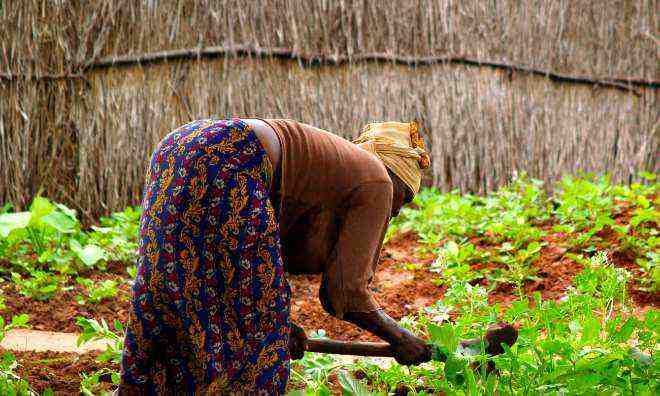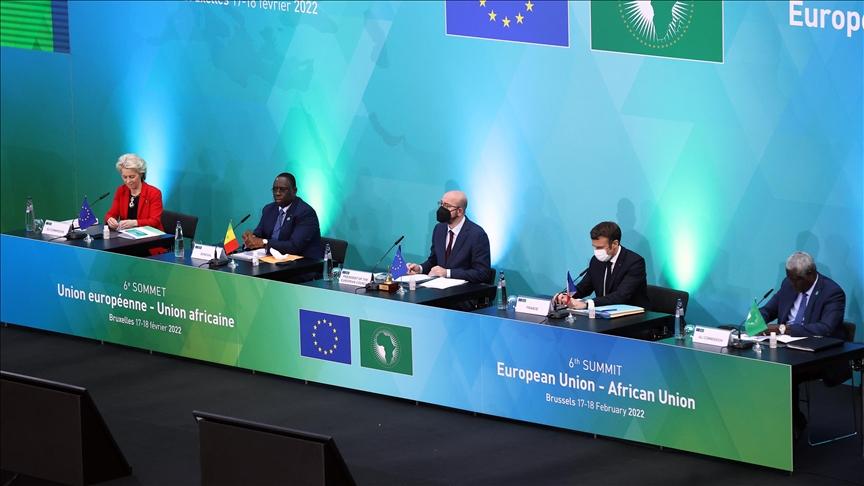- Africa’s new dawn: the rising role of digital and AI in agriculture
- Can Dangote Refinery Transform Africa Energy Ambition
- Gallup Survey: 80 per cent of Kenyan Workers Are Disengaged and Seek New Opportunities
- Madagascar Man Freed from 5KG Tumor After 15-Year Struggle
- How women in Africa are perceived and treated
- Sugar consumption in Kenya to Increase to 1.23 Million Tonnes
- Can Somalia and Turkey Oil deal Bring Change in Somaliland
- Remittances to Kenya dropped to $371.6 million in June, marking a six month low
Browsing: ECOWAS
- The 1,028km highway will connect economic capitals of five West African countries, part of Ecowas economic block.
- Estimates show the project will cost $15.1 billion and is part of the Trans-African Highway Network.
- ECOWAS Heads of State want to speed up the construction of the highway..
The African Development Bank and the Economic Community of West African States (ECOWAS) Heads of State now want to speed up the construction of the highway between Abidjan and Lagos.
This was realized after the 1st round table of development partners and major regional and international DFIs on the financing of the Construction of the Abidjan–Lagos Corridor Highway, in Abidjan, Côte d’Ivoire.
The round table aimed at providing the main regional and international development finance institutions with the latest information on this major regional project.
Abidjan-Lagos road design
The meeting also served as an awareness-raising platform and “soft market test” for the project, …
- ECOWAS member states fed 22.4 million school-going children in 2022, up from 20 million learners in 2020.
- This represents 42% of the 53 million school children in Sub-Saharan Africa who were fed through school feeding programs last year.
- School feeding intervention, as it happens in Rwanda, can immensely boost agriculture, education, health and nutrition, and social protection sectors.
The past two years have seen West African countries grapple with a number of crises driven by conflict, climate shocks, and a slow recovery from COVID-19 economic fallout worsened by the ongoing Russia-Ukraine war.
The Economic Community of West African States (ECOWAS) member States are, however, defying these tough economic times, emerging as having fed the largest number of school-aged children in Africa.
According to The 2022 State of School Feeding Worldwide report, Ecowas member states fed 22.4 million school-going children in 2022. This was an increase from 20 million children fed …
- Across Africa, a direct correlation exists between income levels and energy use.
- Poor households are often constrained to rely on environmentally detrimental fossil fuels like charcoal and firewood for energy.
- With better incomes, African households can transition to cleaner energy alternatives such as natural gas.
The pioneering work of Kraft and Kraft in the mid-20th century established a link between energy consumption and economic growth in the USA. Drawing on similar principles, recent research has highlighted a direct connection between income levels and energy consumption patterns in Africa.
This article delves into the intricate relationship between income and energy use in Africa and emphasizes the pivotal role of financial inclusion in addressing poverty and climate change.
The link between income and energy consumption
The fundamental theory of consumption posits that household income shapes consumption habits, encompassing not only food but also energy sources. Notably, a direct correlation exists between …
The Economic Community of West African States (ECOWAS) boasts of some of Africa’s largest economies, but like many economies of the world, the 15 member states of ECOWAS are facing both endemic and global challenges that could undermine the region’s economic growth in in 2023.
While two years ago in 2020, before the global pandemic struck, a majority of ECOWAS countries were enjoying the commodity boom with the region’s three of its largest economies – Nigeria, Ghana, and Côte d’Ivoire – accounting for one-fourth of Africa’s GDP.
Unfortunately, short of a change in the global economic projection, it will be a challenge for these West African countries to replicate the pre-pandemic growth. The global economic forecast paints a depressed economy in2023 and at best sluggish growth for more diversified economies, spilling over from the after math of the pandemic, the ongoing Russia-Ukraine war and widespread inflation.
A global analysis released …
Africa is huge continent with untapped potential. With the rest of the world opening up for the best international trade and travel relations, Africa is learning and following the same path, with countries such as Uganda, Kenya and Rwanda easing entry restrictions by issuing visa on arrival and hence turning themselves towards open borders opportunities as members of the East African Community (EAC).
Unrestricted movement of people and goods between African countries holds the key to unlocking this trade potential. That is why trade analysts are touting the African Continent Free Trade Area (AfCTA) as a game changer in inter-Africa trade.
According to United Nations Conference on Trade and Development (UNCTAD), Intra-African trade is currently low at 14.4 percent of total African exports. UNCTAD estimates that the AfCFTA could boost intra-African trade by about 33 percent and cut the continent’s trade deficit by 51 percent.
The possibility of more open …
- By 2050, a quarter of the world’s population (25%) will be in Africa
- Africa Investment Forum (AIF) raises US $31 billion in investment deals
- Only 33 of Africa’s 51 countries have signed the single passport protocol and only four have ratified it
Come 2050, a quarter of the world’s population (25%) will be in Africa, that in itself is a good enough reason to invest in Africa and for Africa to invest in education and workforce skill upgrade.
In fact, according to the African Development Bank (AfDB), there are two other factors that beg for increased investment in Africa. First the fact that Africa holds 65% of the world’s virgin arable land and second, Africa, by far, hosts the world’s biggest known sources of renewable energy.
As AfDB President Akinwumi Adesina put it, “the future of Africa lies in investments, not aid.”
Also Read: Africa shifting to private sector led
…The agricultural transformation in Sierra Leone has demonstrated that delivery changes in traditional sectors may significantly impact food production when implemented effectively and under the appropriate circumstances.…
- Organic agriculture is the use of green manure, compost, biological agriculture, and biological fertilizers derived from animal waste.
- To promote the organic sector in Africa, countries should implement the African Heads of States Decision EX.CL/Dec.621(XVII) on Organic Farming which was made following the report of the Conference of Ministers of Agriculture held in Lilongwe, Malawi in 2010.
- The organic farming market size is expected to grow from $150.63 billion in 2021 to $169.04 billion in 2022 at a compound annual growth rate (CAGR) of 12.2%.
In addition to existing agricultural challenges, pandemics and wars such as the Covid-19 pandemic and the Russia-Ukraine war created issues such as the increase in prices of fuel, food commodities, and particularly agrochemical input.
A shortage of chemical fertilizer, is driving up food costs and creating a crisis for countries in Africa and has many farmers desperate and looking for alternatives. According to The Conversation …
Every African region has felt the effects of Russia’s invasion of Ukraine, with West Africa also bearing the burden of a war miles away in Europe.
- At a period when West Africa has been facing a severe food crisis since 2011, the Ukraine conflict has complicated matters further.
- For most West African nations, the expenses of regulating rising prices are already too high.
- The West African economic crisis and the Russia-Ukraine scenario highlight the perilous linkages between diplomatic sanctions, commerce, and food security.
Africa’s post-Covid recovery hampered
The Russian-Ukrainian conflict has hampered Africa’s potential recovery from the COVID-19 pandemic by raising food and fuel costs, interrupting the trade of services and goods, constricting fiscal space, limiting green transitions, and slowing the flow of development funding across the continent.
The crisis has jeopardized homes, communities, and nations across Africa. Before 2020, African countries were among the world’s fastest-growing. The COVID-19 pandemic …
The European Union (EU) and Nigeria have enjoyed robust trade and bilateral relations since the formulation of this lucrative partnership, and remains its most important trading partner for oil and non-oil exports. In cognizance of Nigeria’s strategic importance as Africa’s most populous nation, and one of the largest economies; the EU’s cooperation with the country aims to enhance growth and stability to achieve social equity, hence their partnership has been rooted in shared values and interests since inception. In addition, Nigeria is also a key beneficiary of the EU’s Foreign Direct Investment (FDI).
To boot, the EU has recently renewed its commitment, pledging to continue to pursue with increased vigour, its bilateral engagement and friendship with Nigeria I n order to deliver better and to make the partnership more fruitful. This comes after the trade volume between the European Union and Nigeria, increased by 25.8 per cent to peak at …





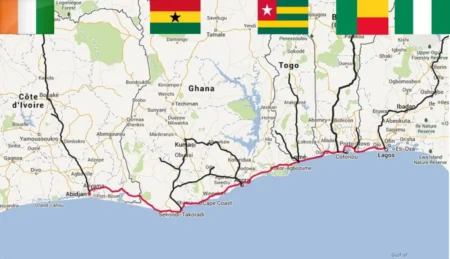
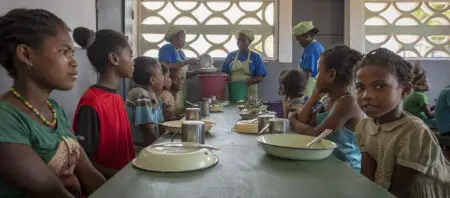
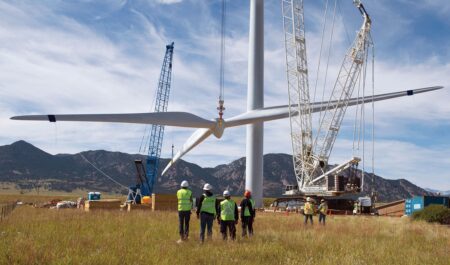
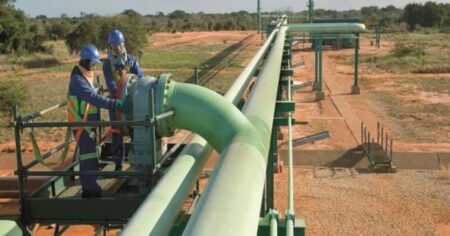
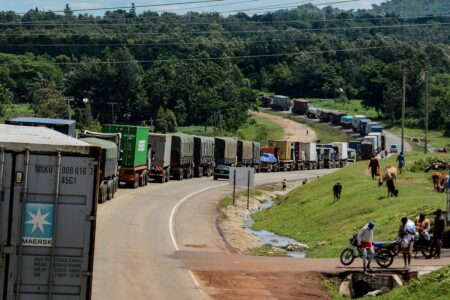
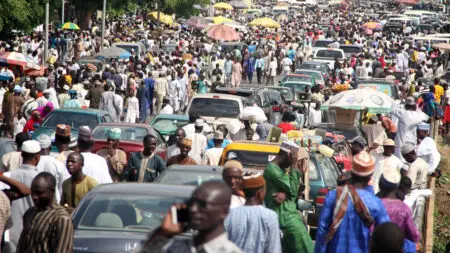
![Africa: Focus on transforming agricultural practices to boost food production Africa must look to improve and transform its agricultural practices to increase food production for food security and economic growth [Photo/Silvapinto] www.theexchange.africa](https://theexchange.africa/wp-content/uploads/2022/08/dreamstime_xl_116738955-scaled-1-1024x682.jpg)
